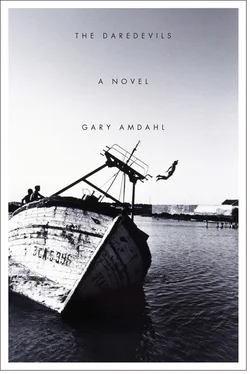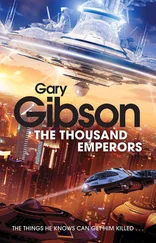Some of her closer, truer friends who were also horseback joined her and they sat their mounts while Thomas with studied meekness handed up glasses of wine and little sandwiches, describing the wine as he did so perhaps too lengthily and fulsomely, as her friends pursed their mouths and raised their eyebrows in suppressed fits of giggling. Then quite suddenly, for many of them had become lost in the wine, Durwood Keogh was upon them. He dismounted and smiled boyishly as he made his way to the picnic basket. Thomas, smiling broadly and shrugging off some of the meekness in favor of hale heartiness, poured the playboy a glass of wine, and watched with mock incredulity as Keogh downed it in two or three gulps. Everyone laughed. It was impossible to dislike Keogh on that level. He was sweaty and dirty and tanned and robust and impeccably dressed. He smacked his lips and indicated he wouldn’t mind another.
Glass in hand, he came and stood over to where Charles and Vera were stretched out in seeming indolence. Charles lay with a blade of grass in his mouth and an empty glass balanced on his breastbone, head propped on two thick pillows, embroidered pillows, the design spreading out from his head like a kind of intricate halo, dense with signs and codes. Vera reclined next to him, impulsively, for show, running her fingers through his hair.
“I enjoyed your show,” said Keogh. “Really did. I don’t see enough theater but I know what I like and I thought your show was first-rate.”
Wondering where Father was and hoping Keogh might go on a little too long and seem foolish, Charles said nothing until a silence had grown all around them.
“Well, thank you,” he said at last, dismissively. “Did you really think so?”
Keogh now paused. “Yes,” he said. “I did indeed.”
“Thank you for saying so.”
Gus and Tony, who were trying to climb the tree, collapsed snickering.
“We ought to talk sometime,” said Keogh.
Charles, surprised, smiled defensively and shook his head. Vera sat up.
“I know you think — everybody here thinks — that that would be tantamount to treason, but it isn’t.”
“What ought we talk about?” Charles spread his hands to suggest he had no idea.
Keogh spoke calmly. “Your brothers are in Sacramento, and no doubt they will get to Washington soon enough. But there are hopes building around you that are of another order. Is that not so? Come now. You shake your head and I think your modesty is genuine but that doesn’t change a thing. Your father is able and strong and resourceful and—”
“Captain Keogh, please don’t tell me what my father is.”
“Very well. I will tell you what I am, and that is, if not your friend, at least not your enemy. You must think I hate your family and dream only of revenge, but that is not so. We want to see you do well, just as your father and his friends do. That is all I wanted to say to you, but you see of course that it’s quite a lot. Too much, perhaps, eh? Enough said, then. We’ve got a war to prepare for! Are you going to wait for the declaration? I hear rumors that you may have some interesting work to do in where was it? Minnesota? The Dakotas?”
Given the first part of Keogh’s speech (which Charles flat did not believe, political plans for him having been abandoned years ago) the second seemed — to him, at least, if not to anyone else in the group — so loaded with venom he could hear a ghostly Amelia warning him about it in a whisper, a whisper he thought he could hear so clearly he looked over at her, seeing her look back at him with intense meaning. It occurred to him, in the shape of an inarguably attractive idea, if not necessarily a good one, that he might knock Keogh down, right then and there, that he might advance fearlessly into the man’s range and knock the sonofabitch down, and stand for a moment over him in contempt. And because he was learning to be an actor in the most dangerous sense, he felt his body preparing itself. But this was, fortunately or unfortunately, only one sequence of thought and action at work in him, and he could not help but admit, conversationally and politely, as was his usual wont, that he saw it was his duty to fight, that the only way he could reconcile a life of wealth and privilege was to sacrifice it for those who had neither, at which point Vera interrupted with an air of frank wisdom, saying it was the duty of the poor to have their vitality sucked out of them as a class with their personal blood as it sprayed out on battlefields, she would say it if nobody else there had the nerve. She was ignored, of course, and Charles continued, saying that if war was not declared soon, he would indeed go to Minnesota. It appeared to be his duty.
“A duty,” said Keogh, “and maybe something of a pleasure. A serious pleasure, to be sure, and possibly dangerous, but a pleasure just the same for a young man. No, no, I understand. But don’t get tied down by anything that might happen in Minnesota. We’ll be in it. Less than a year. We’ll all go together, give the Kaiser a good old-fashioned American kick in the ass. What do you say, Charles old man?”
Inexplicably, he grinned. He hadn’t wanted to give anybody the impression that he liked the idea of sanctioned violence any more than he did unsanctioned violence, but he did not want to go on talking to Durwood Keogh, and a grin seemed the way to end it. He grinned and shook his head.
Pastor Tom and Amelia and their friends had helplessly formed a circle and were watching Charles, Vera, and Keogh rather breathlessly, while behind them horses raised and lowered their great heads, their eyes black and their gazes miles away. Only Amelia’s bristle-maned Appaloosa showed crazed rims of white.
News that he had escorted a woman nobody knew to one of Captain Keogh’s cavalry drill picnics was quickly united to gossip that he had been seen at a gathering of anarchists in the Latin Quarter. More unfortunately, it coincided as well with the shooting death of a policeman, by “an anarchist, a Russian anarchist,” no less, with ties to forgers and, even more sensationally, white slavers. Permutations of the gossip and newspaper accounts occurred rapidly and unpredictably. They ranged from the patently ridiculous — Charles Minot was the white slaver and cop-killer — to the undeniably true: Charles Minot had attended Vera Kolessina’s self-styled “romantic and revolutionary” salon. But when he arrived at the shop the next day to take Vera once more to the Sutro Baths — just an ordinary fun-loving, life-loving young couple — and see, more professionally now, the line clear but porous, if she was ready to return to her role (which had been taken on admirably, as if almost always the case, by an understudy) she could not be found. Cool but imperious, he demanded news of her whereabouts from everybody he saw, but nobody he knew was to be found, either. He went without asking leave of the boy at the cash register — one of the Italians he had seen that first day? — who opened his mouth and raised his hand but said nothing and did not move, through the greasy red curtain, down the aisle of parts, and down the stairs into the basement. No one was there, either. He came back up and apologized to the boy for his rudeness. Then he stood outside, back against the window, scanning the street. After a few minutes, someone tapped the glass behind his head, and he turned, thinking it would be Vera’s face in the gloom he saw, as it had been the day before, but it was the Italian boy’s. He came outside and told Charles that he should not seek to find Vera. Warren Farnsworth had heard about the cavalry picnic and threatened to kill both of them if he found them together. The boy was quick to assure Charles that Warren would do no such thing, that he was a sad and passionate alcoholic but no killer, that he had had many opportunities for what everybody seemed to agree would be good murders, but had eschewed them all, flatly, without second thoughts. He would gladly break the kneecap of a scab, and facilitate acts of sabotage, but drew a very clear and porous line. Nevertheless, Vera was hiding. She did not want to see him, and had explicitly asked him to convey that wish with whatever emphasis it might require to penetrate his arrogant skull. His words, signore, his words! She was nobody’s girl and was sick to death of men in any case. What astonished Charles, when he went over it later, was how little he was moved by Vera’s rejection, how little he feared Farnsworth’s wrath. The boy asked him if he liked morphine and Charles said that he did not especially, but would get back to him.
Читать дальше












